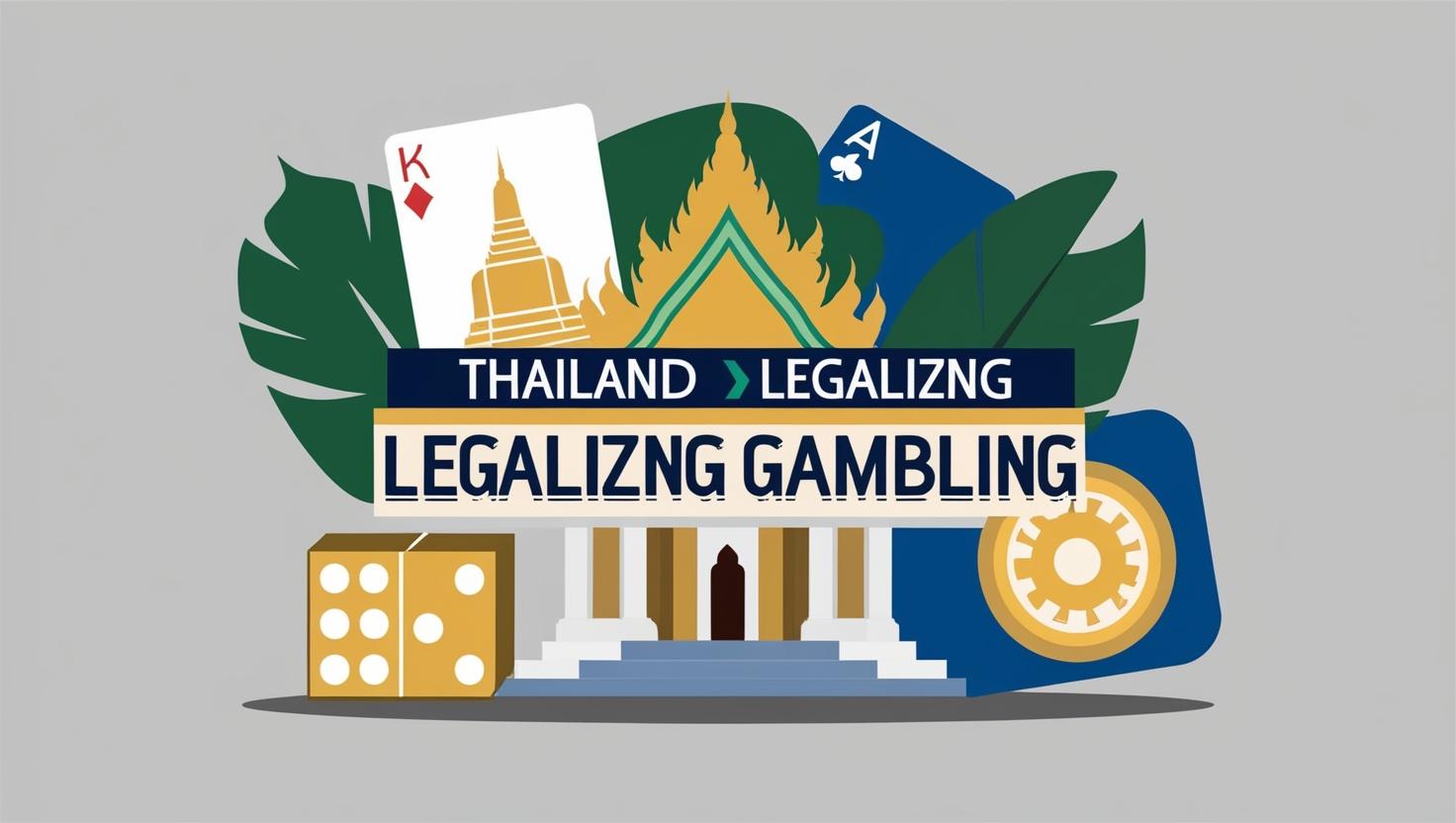Thailand Bets Big: The Bold Move to Legalize Casinos and What Lies Ahead
Thailand is planning to legalize casinos as part of integrated resorts to boost tourism and economic growth. Casinos will occupy 5% of these entertainment hubs, with the rest dedicated to hotels, retail, and attractions. With a projected $12 billion annual boost to tourism, the government aims to curb illegal gambling and create jobs. Major cities like Bangkok and Phuket are potential locations, pending public feedback and finalized regulations.

In a bold move to revive its tourism industry and unlock new economic opportunities, Thailand is taking significant steps toward legalizing casinos. A draft bill, introduced by the Council of State, is now open for public feedback until August 18, laying the foundation for integrating casinos into large entertainment complexes. This initiative could mark a new era for Thailand’s position in the global gaming and tourism markets.
About the Plan: A Glimpse into Thailand’s Casino Future
Thailand’s approach mirrors recent regulatory updates in the United Arab Emirates and seeks to blend casinos with broader entertainment offerings. Here are the key highlights of the draft bill:
1. Integrated Resorts:
- Casinos would be part of expansive entertainment resorts, with gambling areas occupying no more than 5% of the total project space.
- The rest would be devoted to hotels, dining, entertainment venues, convention centers, and luxury retail, offering a comprehensive experience for visitors.
2. Licensing and Entry Regulations:
- Private companies with a minimum paid-up capital of THB 10 billion ($285 million) would qualify for casino licenses, issued for 30 years, with an option for a 10-year renewal.
- Thai citizens would need to pay a reasonable entry fee, inspired by Singapore’s approach, which generated SGD147 million ($109 million) in levies.
3. Strategic Location:
Proposed resorts would be built within 100 kilometers of major airports to ensure seamless access for international tourists. Likely candidates include Bangkok, Phuket, Chiang Mai, and Pattaya, known for their tourism appeal.
4. Economic Feasibility:
A feasibility study conducted by 17 agencies under the finance ministry underscores the government’s commitment to ensuring the economic viability of this initiative.
Economic Insights: A Tourism Jackpot
The legalization of casinos is predicted to add an estimated $12 billion annually to Thailand’s tourism revenue. Considering that tourism contributes approximately 12% to the country’s $500 billion economy, this move could be transformative.
Thailand’s entry into the casino market aims to position the nation alongside established Asian gaming hubs like Macau, Singapore, Malaysia, and the Philippines, boosting its competitive edge. The integrated resort model is designed to attract not just gamblers but a broader demographic of travelers seeking world-class experiences.
The Regional Context and Competitive Landscape
Across Asia, integrated resort markets are already thriving, with countries like Vietnam, South Korea, and Japan actively developing their own gaming and entertainment complexes. Thailand’s natural tourism appeal, combined with its strategic location, gives it a unique advantage.
To stand out, Thailand must focus on:
- Offering a diverse entertainment experience, blending cultural and modern elements.
- Ensuring a robust regulatory framework to promote responsible gaming and combat issues like money laundering.
- Leveraging technology for seamless operations, from cashless gaming to AI-driven personalization.
Potential Challenges and Future Outlook
While the economic benefits are promising, Thailand’s casino plans face challenges that require careful navigation:
Social Sensitivities:
Gambling has long been a sensitive topic in Thai culture. Balancing economic interests with societal values will be critical.
Regulation and Oversight:
A transparent regulatory framework must address concerns around gambling addiction, financial crime, and fair play.
Infrastructure Expansion:
To support an influx of international tourists, investments in transportation, hospitality, and urban development will be necessary.
Conclusion: Thailand’s Bold Gamble
Thailand’s move to legalize casinos is more than an economic strategy—it’s a calculated gamble to redefine the nation’s tourism landscape. If executed thoughtfully, this initiative could cement Thailand’s position as a leading destination for integrated entertainment.
By combining cultural charm with modern innovation, Thailand has the potential to not only boost its economy but also set a new benchmark for sustainable tourism and gaming in Asia. The world watches as this bold vision unfolds, promising a future where Thailand reclaims its place as a global tourism powerhouse.
Sumeet Pati
Recent Posts
-
 The Casino Industry’s Biggest Hurdles: Financial Struggles and Community Resistance in Focus07 Feb 2025
The Casino Industry’s Biggest Hurdles: Financial Struggles and Community Resistance in Focus07 Feb 2025 -
 What’s Next for U.S. Casino Industry: Key Updates, Trends & Insights17 Jan 2025
What’s Next for U.S. Casino Industry: Key Updates, Trends & Insights17 Jan 2025 -
 Top 5 Must Visit Casinos in Asia-Pacific in 202503 Jan 2025
Top 5 Must Visit Casinos in Asia-Pacific in 202503 Jan 2025 -
 Thailand Bets Big: The Bold Move to Legalize Casinos and What Lies Ahead11 Dec 2024
Thailand Bets Big: The Bold Move to Legalize Casinos and What Lies Ahead11 Dec 2024
Categories
Have Any Question?
- + (877) 462-3176 Toll Free US & Canada
- [email protected]


